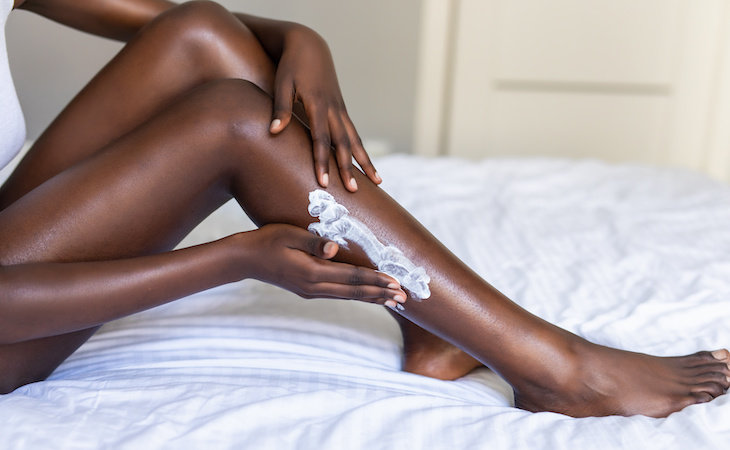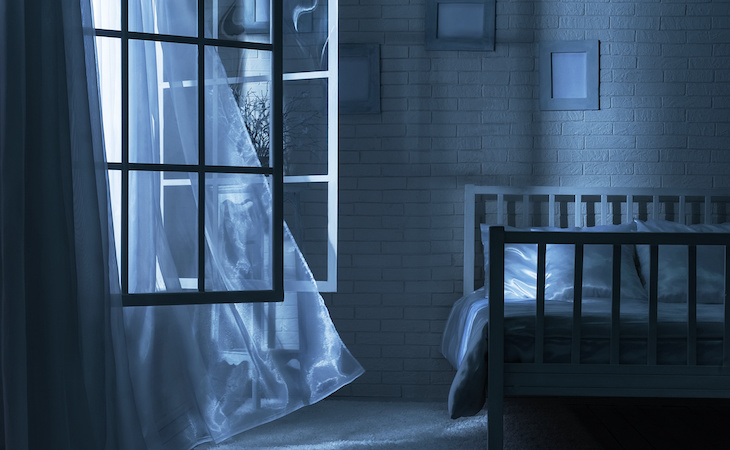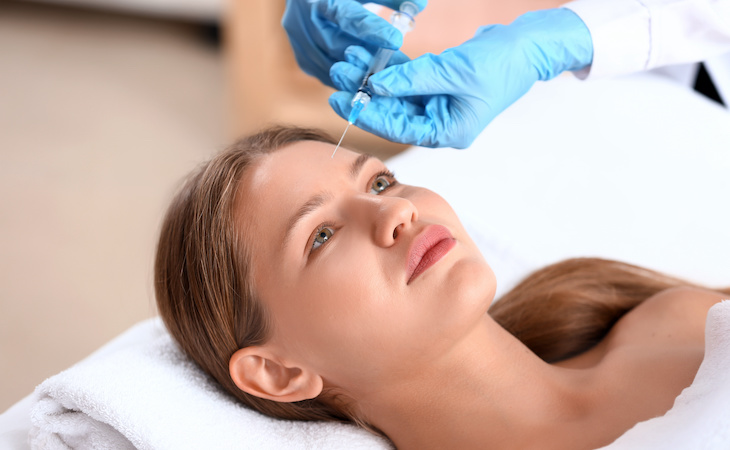Have you ever tried to fall asleep but can’t because of itchy skin? You try to ignore it, but the itch won’t quit. Of course, when your skin itches your natural response is to scratch it. But scratching can irritate and inflame your skin—and still keep you awake. [12]
This article will explore the causes, symptoms, treatments, and suggestions for how to sleep better if you experience itchy skin at night.
What is itchy skin at night?
Itchy skin at night is a condition called nocturnal pruritus. A variation of it is called nocturnal pruritus ani, which basically means itchy butt. [13] It can include such symptoms as a rash, bumps, welts, and patches of dry or scaly skin. [14] Depending on the cause, it might also involve scratch marks, lighter or darker color changes to your skin, sores, or a leaky, crusty wound that won’t heal.
Nocturnal pruritus can affect any part of your skin. [14] You may experience one or more of these symptoms, though they all involve itchiness that makes you want to scratch it.
What causes itchy skin at night?
There are a variety of possible causes for itchy skin at night, including:
- Your body’s circadian rhythm. Your body temperature and blood flow to your skin increase at night, which can make you feel itchy. [4]
- Dry skin. Your body loses moisture at night, which can make your skin feel itchy. [4]
- Hormonal changes. At night, your body releases more cytokines (which increase inflammation) while releasing less of the corticosteroids that reduce inflammation. [4] Your hormones change too when you’re pregnant or experiencing menopause. [5]
- Fewer distractions. During the day, other activities distract you from the itchy sensation.[4] But as you’re trying to let go of distractions to sleep, the itchiness can really stand out and insist on being scratched. [4]
What conditions can cause itchy skin at night?
Several medical conditions can also cause itchy skin at night, including:
- Skin diseases, such as dermatitis, eczema, psoriasis, or hives
- Other diseases, such as kidney or liver disease
- Bugs, such as scabies, lice, bed bugs, and pinworms
- Infections
- Thyroid problems
- Mental health conditions, such as stress, depression, and schizophrenia
- Cancers, such as leukemia and lymphoma
- Nerve disorders, such as multiple sclerosis, shingles, and diabetes
- Allergic reactions to such substances as chemicals, drugs, foods, or cosmetics
- Pregnancy [4, 5, 7, 17]
How do you treat itchy skin at night?
Fortunately, there are things you can do to keep itchy skin from keeping you awake at night. The first step is to figure out what, exactly, is making your skin itch. [9]
“There are many factors that cause itching at night,” says Crystal Dinopol, dermatologist and writer for payitforwardfertility.org. “It’s important to try to address these to help you sleep soundly.”
Other things to consider:
Use a moisturizing lotion during the day and before bed
This will prevent your skin from drying out and making the itching worse. You can also apply an over-the-counter anti-itch cream to your skin. [5, 9]
Apply a cool, wet compress to your skin
This will help counteract the body’s higher nighttime temperature and moisturize the itchy area. [14]
Use clean bedding
“Your bedding and linens should be washed in hypoallergenic detergents, and the fillings in your mattress and pillow should also be hypoallergenic and sanitized every few months to get rid of mites and bed bugs,” says Dinopol. (Here’s how to choose the best sheets for sensitive skin.)
Eliminate stress
“Most people don’t realize that stress and anxiety have a direct relationship with itching at night,” says Rosmy Barrios, MD, an anti-aging and regenerative medicine specialist and medical advisor for Health Reporter. “When you’re stressed, your body produces more cortisol, which increases inflammation and can change how your adrenal glands work, leading to itchy skin.” [4]
With time, this can form a continuous loop that causes you to feel itchy whenever you’re stressed. Barrios recommends listening to soothing music before sleep and practicing yoga and meditation daily to calm your mind and relax. [2, 4]
Take a lukewarm bath before bedtime
“Your skin has a buildup of dust, germs, and even dead skin cells throughout the day,” says Barrios, “so it’s important to clean it before you sleep.” Dust and germs are irritants that can lead to skin inflammation, so it’s best to go to bed with clean and well-moisturized skin, she adds. “Ideally, after you take a bath, moisturize your skin with a hydrating moisturizer, which will prevent it from drying and combat itching,” says Barrios. [10, 11]
Barrios recommends adding finely ground oatmeal to your bath. “Grind your oats into a fine powder to make them emollient,” she says. Add them to a glass of water and test the texture. It should look milky and feel silky when you rub it between your fingers. Then mix it by hand in your lukewarm bathwater and soak for 10 to 15 minutes. “This will give you enough time to hydrate and soothe your skin,” says Barrios. Dry by gently patting your skin and follow up with a moisturizer. [1]
What should you avoid if you have itchy skin at night?
If you experience itchy skin at night, you can prevent or reduce the itch by:
- Not wearing scratchy pajamas. Instead, wear pajamas made from soft natural fibers, such as cotton or silk. [3]
- Avoiding caffeine and alcohol before bedtime. Caffeine may disrupt sleep as it has stimulant properties. [8] Alcohol may cause your blood vessels to dilate which can send more blood to the skin. [6, 16]
- Not using cosmetics, perfumed creams, scented soaps, or other products that can irritate your skin. [15]
When to see a doctor
Dinopol notes that for skin problems, such as eczema, “it’s best to have it checked by your dermatologist to get prescription medications and creams.”
You should see a doctor if at-home treatments don’t work and your itching doesn’t improve after a couple of weeks. You’ll want to know if there’s an underlying cause at play.
“Also, I recommend that you pay attention to symptoms such as fever, rash, fatigue, and unexplained weight loss,” Barrios says. “If you’re experiencing these things along with the itching, it’s a sign that you should seek medical help at the earliest.”
FAQs
Why is my skin itchy at night?
Because several factors could be making your skin itchy at night, it’s important to figure out what’s causing yours to itch. You may be at higher risk of developing itchy skin at night if you’re age 65 or older, have allergies, bathe frequently, have a skin condition such as eczema or psoriasis, are pregnant or menopausal, have diabetes or another disease, or sleep in an over-heated bedroom. [4, 5, 7, 17]
Can stress cause itchy skin at night?
Stress and anxiety can absolutely cause your skin to itch at night. The extra cortisol your body produces when you’re stressed causes inflammation, which can make your skin itch. [10]
How do I prevent itchy skin at night?
To help prevent itchy skin at night, wear pajamas made from soft natural fibers such as cotton or silk. [3] Avoid caffeine which can make it hard to sleep and alcohol, which dilates your blood vessels and send more blood to the skin. [6, 8, 16] And avoid cosmetics, soaps, and other skin products that can irritate your skin. [15]
How do I relieve itchy skin at night?
You can relieve itchy skin at night by applying moisturizer to your skin during the day and at bedtime, ideally after a lukewarm bath. [10] Eliminate stress, which can contribute to making your skin itchy at night. [5, 10]
Over-the-counter anti-itch creams can help, and so can a cool, wet compress applied to the itchy area to counteract the body’s higher nighttime temperature. Be sure your bedding is clean and that all the materials in your mattress, sheets, and pillows are hypoallergenic. [5, 9]
References
- Cerio R, Dohil M, Jeanine D, Magina S, Mahé E, Stratigos AJ. Mechanism of action and clinical benefits of colloidal oatmeal for dermatologic practice. J Drugs Dermatol. 2010;9(9):1116-1120.
- Jafferany M, Davari ME. Itch and psyche: psychiatric aspects of pruritus. Int J Dermatol. 2019;58(1):3-23. doi:10.1111/ijd.14081
- Jaros J, Wilson C, Shi VY. Fabric Selection in Atopic Dermatitis: An Evidence-Based Review. Am J Clin Dermatol. 2020;21(4):467-482. doi:10.1007/s40257-020-00516-0
- Lavery MJ, Kinney MO, Mochizuki H, Craig J, Yosipovitch G. Pruritus: an overview. What drives people to scratch an itch?. Ulster Med J. 2016;85(3):164-173.
- Lavery MJ, Stull C, Kinney MO, Yosipovitch G. Nocturnal Pruritus: The Battle for a Peaceful Night’s Sleep. Int J Mol Sci. 2016;17(3):425. Published 2016 Mar 22. doi:10.3390/ijms17030425
- Liu SW, Lien MH, Fenske NA. The effects of alcohol and drug abuse on the skin. Clin Dermatol. 2010;28(4):391-399. doi:10.1016/j.clindermatol.2010.03.024
- Oaklander AL, Cohen SP, Raju SV. Intractable postherpetic itch and cutaneous deafferentation after facial shingles. Pain. 2002;96(1-2):9-12. doi:10.1016/s0304-3959(01)00400-6
- O’Callaghan F, Muurlink O, Reid N. Effects of caffeine on sleep quality and daytime functioning. Risk Manag Healthc Policy. 2018;11:263-271. Published 2018 Dec 7. doi:10.2147/RMHP.S156404
- Patel T, Yosipovitch G. Therapy of pruritus. Expert Opin Pharmacother. 2010;11(10):1673-1682. doi:10.1517/14656566.2010.484420
- Podder I, Mondal H, Kroumpouzos G. Nocturnal pruritus and sleep disturbance associated with dermatologic disorders in adult patients. Int J Womens Dermatol. 2021;7(4):403-410. Published 2021 Mar 3. doi:10.1016/j.ijwd.2021.02.010
- Rajagopalan M, Saraswat A, Godse K, et al. Diagnosis and Management of Chronic Pruritus: An Expert Consensus Review. Indian J Dermatol. 2017;62(1):7-17. doi:10.4103/0019-5154.198036
- Rinaldi G. The Itch-Scratch Cycle: A Review of the Mechanisms. Dermatol Pract Concept. 2019;9(2):90-97. Published 2019 Apr 30. doi:10.5826/dpc.0902a03
- Siddiqi S, Vijay V, Ward M, Mahendran R, Warren S. Pruritus ani. Ann R Coll Surg Engl. 2008;90(6):457-463. doi:10.1308/003588408X317940
- Tivoli YA, Rubenstein RM. Pruritus: an updated look at an old problem. J Clin Aesthet Dermatol. 2009;2(7):30-36.
- van Amerongen CCA, Ofenloch RF, Cazzaniga S, et al. Skin exposure to scented products used in daily life and fragrance contact allergy in the European general population – The EDEN Fragrance Study. Contact Dermatitis. 2021;84(6):385-394. doi:10.1111/cod.13807
- Vlachopoulos C, Tsekoura D, Tsiamis E, Panagiotakos D, Stefanadis C. Effect of alcohol on endothelial function in healthy subjects. Vasc Med. 2003;8(4):263-265. doi:10.1191/1358863x03vm505oa
- Wang H, Yosipovitch G. New insights into the pathophysiology and treatment of chronic itch in patients with end-stage renal disease, chronic liver disease, and lymphoma. Int J Dermatol. 2010;49(1):1-11. doi:10.1111/j.1365-4632.2009.04249.x








